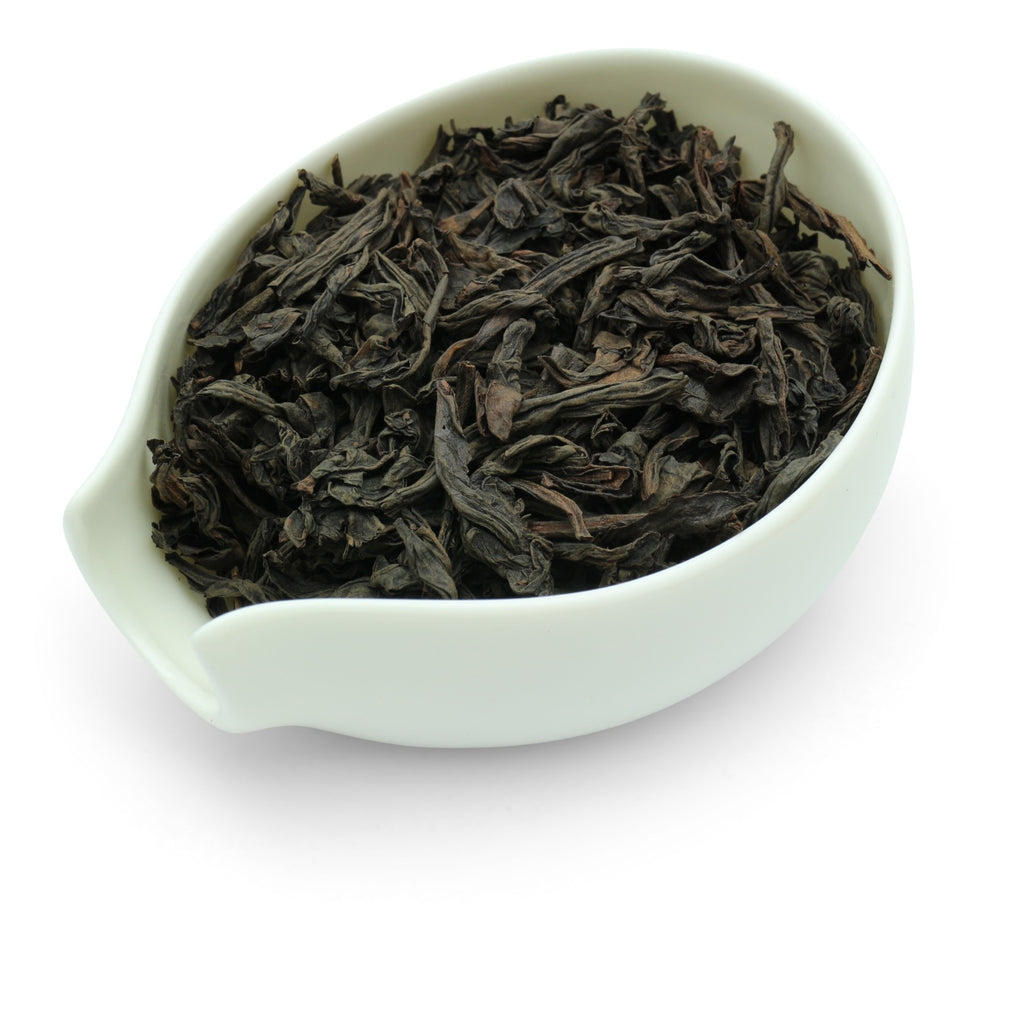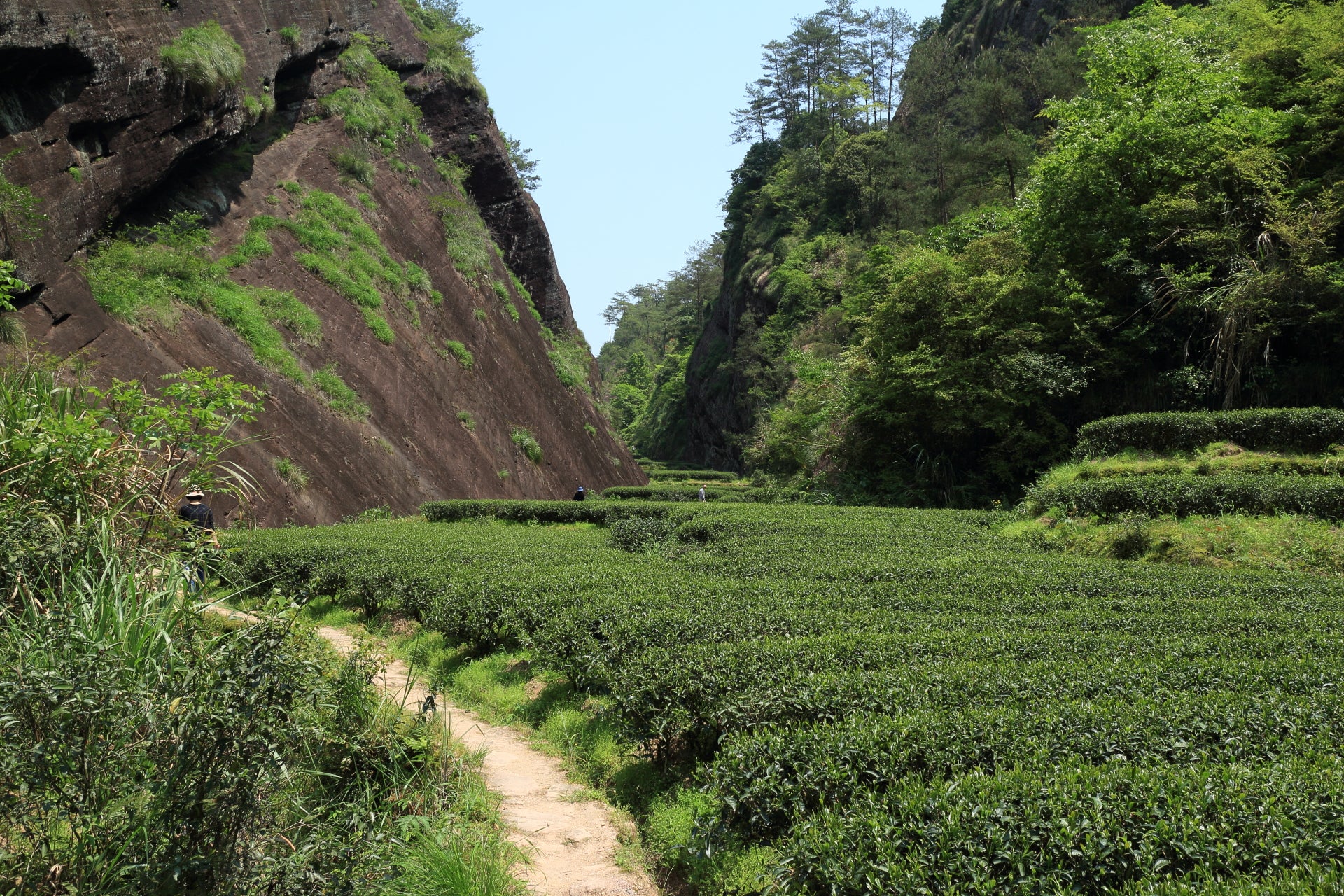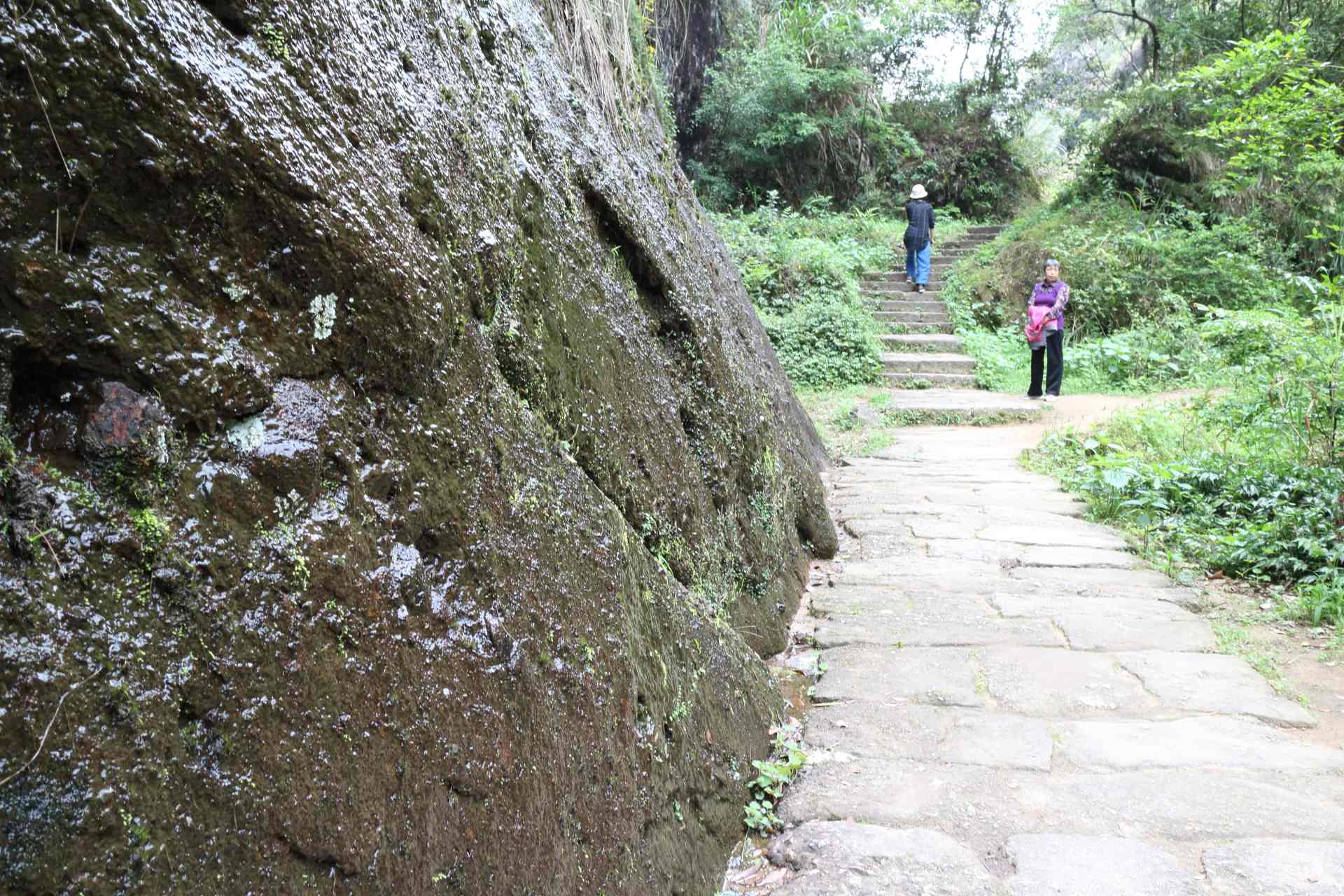Aged Tieluohan
While generally good practice to leave strongly roasted yan cha to 'rest' for a few years to mellow out, longer ageing can bring out something else. This Tieluohan was only roasted once at the time of production rather than being 'refreshed' in the interim, and the resulting taste emphasizes that ageing: a very grounded infusion expresses barny aromas and the depth of liqueur, yet remains lightly acidic and sweet with its characteristic note of pear. The distinct scent of hazelnuts and a minty hui gan make for a very balanced yan cha, leaving the taster plenty of room to explore and bring out a desired character in the steeping.
- ORIGIN: Lianhuafeng, Wuyishan, Nanping, Fujian, China
- MEANING: Iron Arhat (tie luo han)
- CULTIVAR: Tieluohan
- HARVEST TIME: Spring 2015
- TASTE: Hazelnut, pear, barny
IN THE TEAPOT
- Quantity: 6g / 500ml
- Water temperature: 90°C
- Infusion time: 5 min
GONGFU CHA METHOD
- Quantity: 3g / 100ml
- Water temperature: 90°C
- 4 infusions: 45, 45, 60, 90 sec
For best results in gongfu cha, brew in the traditional gaiwan or in a Yixing teapot. Too high water temperature would burn the leaves, resulting in bitter taste.
Additional Information
Authentic Wuyi Yan Cha is produced in the Wuyi Mount region, a UNESCO natural heritage site. The dramatic gorges of the Nine Bend River are surrounded by a largely intact subtropical forest and smooth cliffs of black-brownish rocks. The tea plants grow in narrow valleys, next to the cliffs, in a mineral-rich soil.
Tea leaves have been processed here for at least a thousand years. From the 11th to 16th centuries, when Oolong tea was yet to be invented, there was an imperial tea farm on the mountains, producing green tea for the imperial court. Oolong production was boosted in the 17th century thanks to the great export demand from Europe. At that time, Wuyi was known in England as “Bohea,” and the tea imported from this region was labeled black tea. Note that black tea, as we know it today, was created centuries later.
Today Wuyi Yan Cha is one of the most valued teas in China. Because it has become a status symbol, many wealthy Chinese are willing to pay a fortune for it without even knowing how a proper Wuyi Yan Cha should taste. The result has been prices inflating to unjustified level and quality often sacrificed for quantity.
Unique to the Wuyi Yan Cha is a mineral savor coming from the soil and the surrounding cliffs. Being the oolong with the highest fire finish, fresh Yan Cha may as a result be strong and pungent. Sharpness and too-prominent astringency subside upon ageing. Premium high-fire Yan Cha tastes better after a few years of storage. Use a Yixing teapot to soften the tea, should it be too astringent for your palate.
The overall tasting profile is rich, complex, and deep. Depending on cultivar and environment, the mineral-roasted flavor is refined by floral, fruity, nutty or woody accents.
Today Wuyi Yan Cha is one of the most valued teas in China. Because it has become a status symbol, many wealthy Chinese are willing to pay a fortune for it without even knowing how a proper Wuyi Yan Cha should taste. The result has been prices inflating to unjustified level and quality often sacrificed for quantity.
Unique to the Wuyi Yan Cha is a mineral savor coming from the soil and the surrounding cliffs. Being the oolong with the highest fire finish, fresh Yan Cha may as a result be strong and pungent. Sharpness and too-prominent astringency subside upon ageing. Premium high-fire Yan Cha tastes better after a few years of storage. Use a Yixing teapot to soften the tea, should it be too astringent for your palate.
The overall tasting profile is rich, complex, and deep. Depending on cultivar and environment, the mineral-roasted flavor is refined by floral, fruity, nutty or woody accents.










